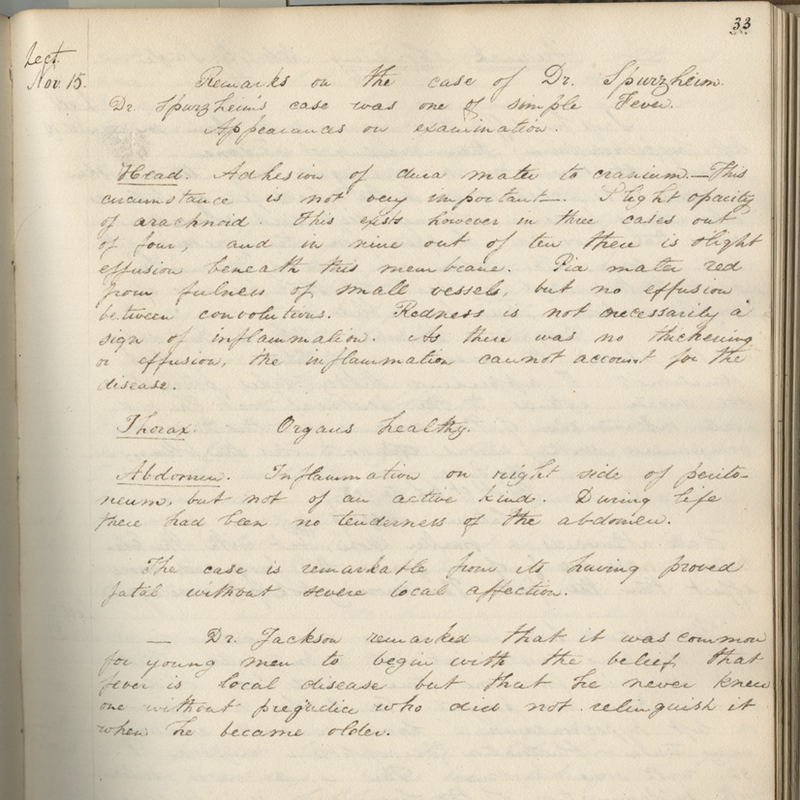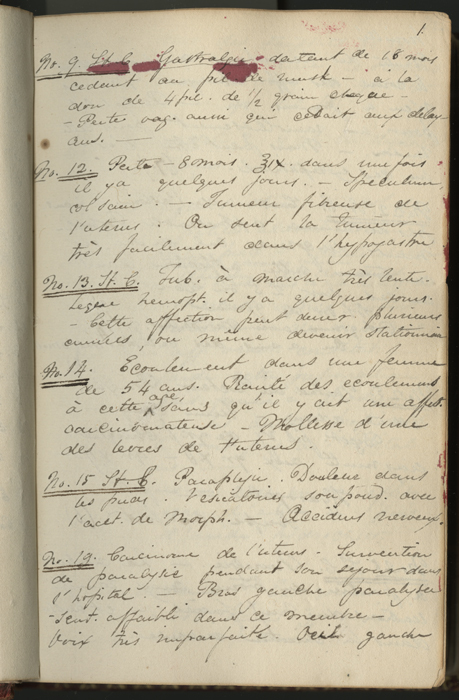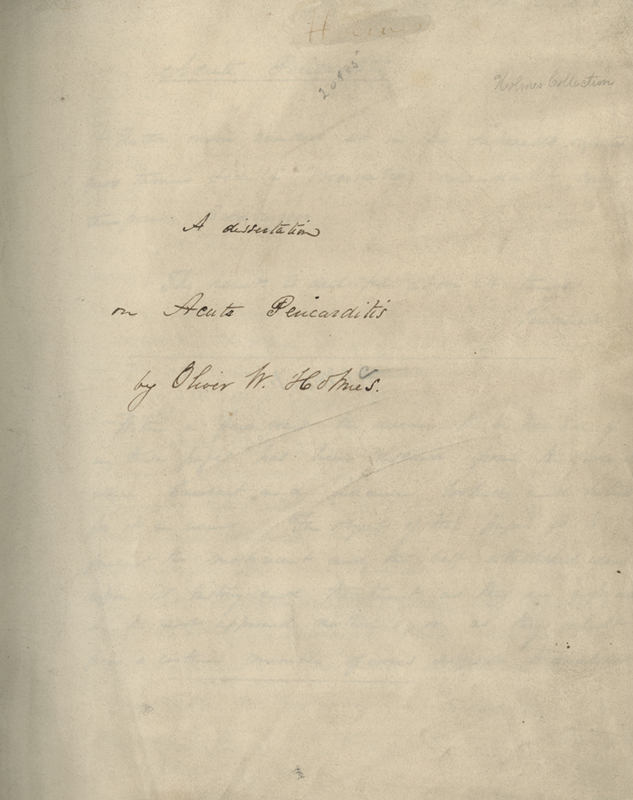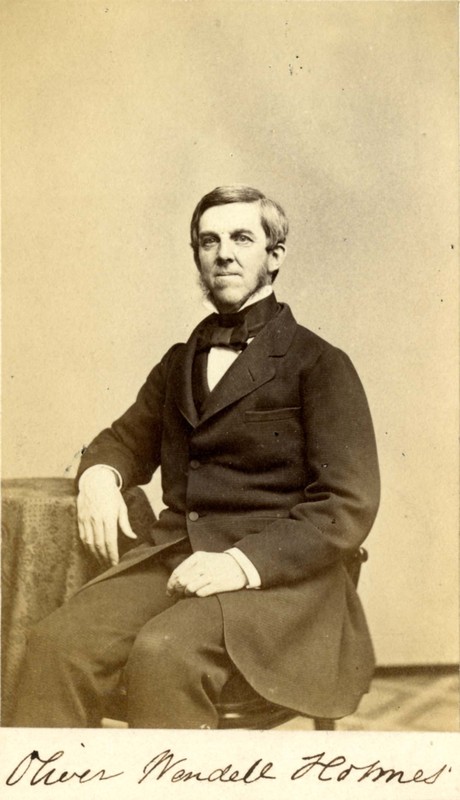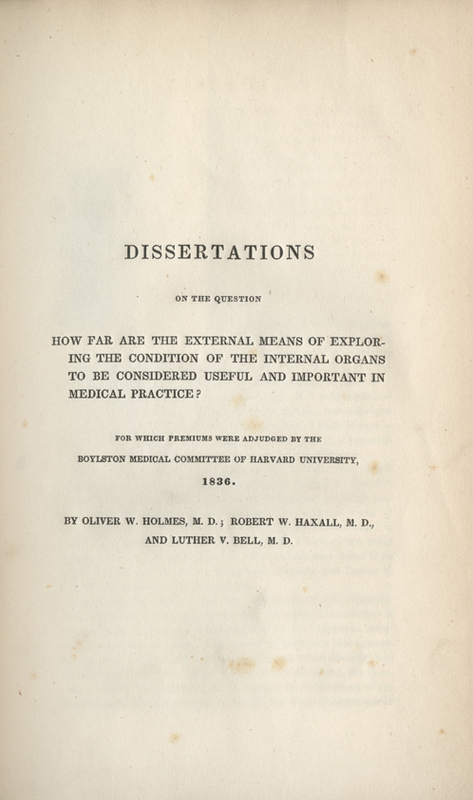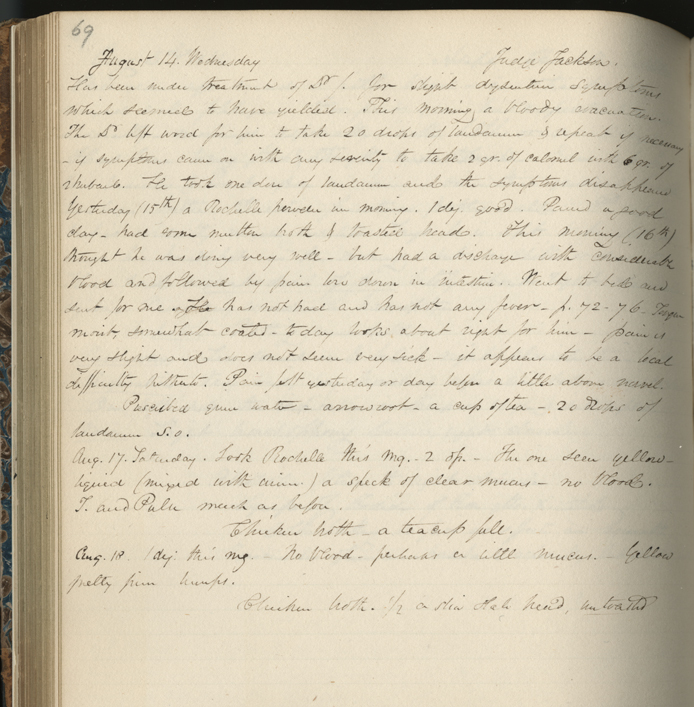Early Medical Work
During the early 1830s, Holmes was enrolled at Harvard Medical School, but also sought tuition privately with Dr. James Jackson. Two volumes of Holmes’ notes on Jackson’s lectures have survived. Here, on November 15, 1832, Jackson comments on the fever and death of phrenologist Johann Gaspar Spurzheim, who had been lecturing in Boston and died five days earlier. Jackson had attended Spurzheim at his death, and John Collins Warren performed the autopsy.
After studying medicine with James Jackson, Holmes continued his medical education in Europe, beginning in the summer of 1833. He studied with some of France’s most famous physicians, including Marjolin, Roux, Velpeau, and Andral; this is Holmes’ notebook from the clinical lectures and demonstrations of Pierre Charles Alexandre Louis (1787-1872) at the Hôpital de la Pitié. In his letters home and recollections from this period, Holmes said, “I have more fully learned at least three principles since I have been in Paris: not to take authority when I can have facts; not to guess when I can know; not to think a man must take physic because he is sick …. Many a long and wearying hour I have passed on the stone floor of the autopsy-room at La Pitié, wasting my time over little points which, a few years later, would have been easily settled by the microscope …. As for the science of England and France, or rather Paris and London—to judge by their books and their students, and the reports of the intelligent young men who have seen both, the Frenchmen have half a century in advance.”
This is the manuscript of Holmes' thesis, submitted as part of the degree requirements at Harvard Medical School. Following his return from his sojourn in Europe, he compiled the thesis from lectures of Pierre Charles Alexandre Louis he had attended and cases seen at La Pitié, but "rapidly, for circumstances obliged me to prepare it entirely in the space of little more than three days; imperfectly, for I had only the resources of my own library and notes, and had scarcely time to analyse any cases besides those I had reduced to the tabular form two years before."
The original of this photograph is preserved in an album of the members of the Boston Society for Medical Improvement, compiled in 1872. Holmes was elected to membership in the society in 1836, just after his graduation from Harvard Medical School.
After receiving his medical degree from Harvard, Holmes was granted the Boylston Prize in 1836 for his essay responding to the question “How far are the external means of exploring the condition of internal organs to be considered useful and important in medical practice?” The essay makes frequent reference to the lectures and clinical demonstrations of P. C. A. Louis which Holmes had recently attended in Paris. This copy was presented by Holmes to his mentor, Dr. James Jackson (1777-1867).
Holmes was also awarded two Boylston Prizes in 1837 for separate essays on neuralgia and intermittent fever in New England.
Little is known of Holmes’ private medical practice, but this volume of case notes derives from the period while he was on the Tremont School faculty and immediately following his research into the contagiousness of puerperal fever. The Judge Jackson being treated here is probably Charles Jackson (1775-1855), formerly of the Massachusetts Supreme Judiciary Court—and, since 1840, Holmes’ father-in-law.

